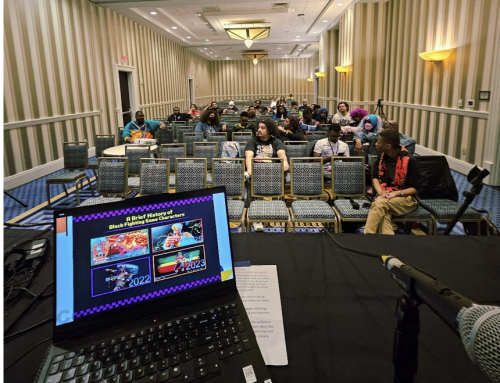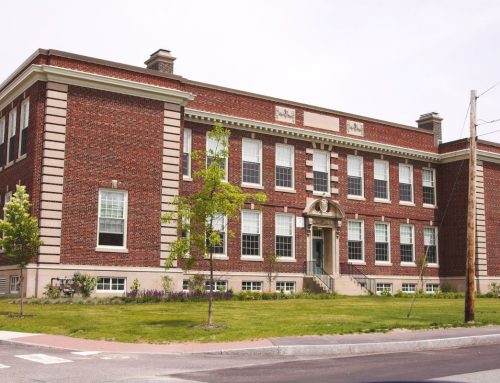When Dr. Gloria Ladson-Billings graduated from Morgan State University in 1968 with a degree in education, I wonder if she could have imagined the impact her work would one day have on classrooms nationwide. Today, she is celebrated as one of the most influential scholars in education and the originator of culturally relevant pedagogy (CRP) — a teaching framework that focuses on supporting Black students, and equipping educators to affirm students’ identities, build academic success, and nurture critical thinking.
Dr. Ladson-Billings is just one example of how Historically Black Colleges and Universities (HBCUs) have shaped education by preparing educators who lead with purpose, cultural integrity, and excellence. CRP is now embedded in educator preparation programs nationwide, especially at HBCUs, to support teacher candidates with knowledge and skills for teaching in urban settings.
My own story began at North Carolina A&T State University (Aggie Pride!), where I majored in elementary and special education. During my freshman year, one of my first courses introduced me to CRP. That class was more than a syllabus requirement; it became the foundation for my teaching philosophy. I learned that teaching is not just about delivering content, but about advocacy, building trust with students and families, and creating classrooms where every child can thrive through culturally affirming practices.
Every course throughout my educator preparation program infused tenets of CRP. That intentional focus is part of what makes HBCU teacher preparation programs so unique. Unlike many programs that treat cultural competence as an “add-on,” HBCUs embed it at every level. Their students graduate with a strong sense of responsibility, not only to teach but to lead in communities where representation and advocacy are desperately needed.
Black Teachers Matter
America’s classrooms are becoming more diverse each year, but the teaching force has not kept up. Nearly 80% of public school teachers are white, while only about 6% are Black (Taie & Lewis, 2022). This mismatch matters. Research shows that when Black students have Black teachers, they are more likely to graduate from high school, attend college, and feel affirmed in their identity (Gershenson et al., 2022). Black teachers play a transformative role not only as instructors but as mentors, role models, and advocates (Lee, 2019). They carry lived experiences that help them connect deeply with students, particularly those from historically marginalized backgrounds (Gershenson et al., 2022).
On the flip side, Black students taught by teachers unfamiliar with CRP are more likely to face negative outcomes, including lower expectations, harsher discipline, and inappropriate referrals for special education (Fish, 2019). And yet, despite their importance, Black teachers remain underrepresented, especially in areas like special education where their presence is most needed (Fish, 2019). This is where HBCUs step in.
HBCUs Filling the Gap
Dr. Ladson-Billings (2000) described effective teacher education as going beyond textbooks. She pointed to four essential practices:
- Personal and cultural autobiographies that help preservice teachers reflect on who they are and how that shapes their teaching.
- Restructured field experiences that go beyond classrooms into community spaces like churches and neighborhood associations to better understand the lives of students.
- Situated pedagogies that connect teacher preparation directly to the communities graduates will serve.
- Learning from classroom experts who model culturally relevant practices in action.
HBCUs embody these principles. Their programs don’t just emphasize academic achievement; they emphasize cultural competence, community immersion, and sociopolitical awareness.
How do HBCUs pull this off, you ask?
HBCUs make up only 3% of U.S. colleges and universities, but they produce 50% of all Black public school teachers (Moening, n.d.). That statistic alone illustrates their outsized role in diversifying the teaching profession. Affordability is part of the story. On average, HBCU tuition is about 30% more economical than at predominantly white institutions (Moening, n.d.). Most importantly, HBCUs intentionally create nurturing environments that support first-generation and low-income students, ensuring they not only enter but graduate prepared to lead (Moening, n.d.).
But these facts only tell part of the story. For aspiring Black educators, HBCUs open doors to teaching careers that may once have felt out of reach (Moening, n.d.). What makes HBCUs truly unique is how they prepare the next generation of Black teachers to serve with cultural competence, criticality, and a strong and authentic commitment to the local and broader community. For example, teacher candidates at Morgan State University have partnered with NASA and the National Aquarium to lead STEM programs for K–12 students (Moening, n.d.). This integration of culturally relevant pedagogy (CRP) into coursework and fieldwork equips HBCU-trained teachers to meet the needs of today’s diverse classrooms.
Faculty at the Forefront
HBCU faculty play a central role in developing the next generation of Black teachers and educational leaders. When I reflect on my professional and scholarly pursuits, I can attest that it was because of my HBCU foundation that I was able to accomplish much more than I ever imagined. A significant supporter who has continued to mentor me throughout my journey is my former special education professor, Dr. Cathy Kea. Dr. Kea dedicated her career to recruiting and preparing Black special education teachers. She developed programs at North Carolina A&T State University that helped future educators (like me) learn to support families effectively, thrive in urban schools, and rethink what special education could look like when rooted in equity. In an article reflecting on her work, she wrote:
We all know our goals. Mine is to give what has been given to me—and more—to our future educators so they, in turn, can impact others. We have a responsibility to our teacher candidates on the first day that they enter our classrooms to cultivate their minds. We must be intentional about the teaching and learning process so they will become advocates for change and pay it forward (Jones et al., 2021, p. 139).
Although I was no longer in the K-12 classroom, Dr. Kea continued mentoring me through graduate school and even served on my dissertation committee. Her commitment reflected what is so powerful about HBCUs: faculty don’t just teach, they invest in students as whole people and continue that support long after graduation.
Final Thoughts
At a time when teacher shortages persist, especially among Black educators, the role of HBCUs is more critical than ever. They have proven that preparing teachers with the essential components of CRP makes a difference not only for students but also for the future of education.
As a proud product of an HBCU teacher preparation program, I know firsthand how transformative that experience can be. HBCUs are not just training teachers; they cultivate advocates, cultural brokers, and leaders who pay it forward in classrooms and communities across the country. That is a legacy worth investing in.
References
Fish, R. E. (2019). Standing out and sorting in: Exploring the role of racial composition in racial disparities in special education. American Educational Research Journal, 56(6), 2573-2608. https://files.eric.ed.gov/fulltext/EJ1221940.pdf
Gershenson, S., Hart, C. M., Hyman, J., Lindsay, C. A., & Papageorge, N. W. (2022). The long-run impacts of same-race teachers. American Economic Journal: Economic Policy, 14(4), 300-342. https://doi.org/10.1257/pol.20190573
Jones, V. L., Higgins, K., & Boone, R. (2022). Born a Culturally Responsive Educator: A Conversation With Dr. Cathy Kea. Intervention in School and Clinic, 58(2), 135-139. https://doi.org/10.1177/10534512211051076
Ladson-Billings, G. (2000). Fighting for our lives: Preparing teachers to teach African American students. Journal of Teacher Education, 51(3), 206-214.
Lee, S. J. (2019). Black teachers matter: Examining the depths of seven HBCU teacher preparation programs. Urban Education Research & Policy Annuals, 6(2).
Moening, K. (n.d.). HBCUs are leading the way. https://www.teach.org/articles/hbcus-are-leading-way
Taie, S., and Lewis, L. (2022b). Characteristics of 2020–21 public and private K–12 school teachers in the United States: Results from the National Teacher and Principal Survey first Look (NCES 2022-113). U.S. Department of Education. National Center for Education Statistics. https://nces.ed.gov/pubsearch/pubsinfo.asp?pubid=2022113







